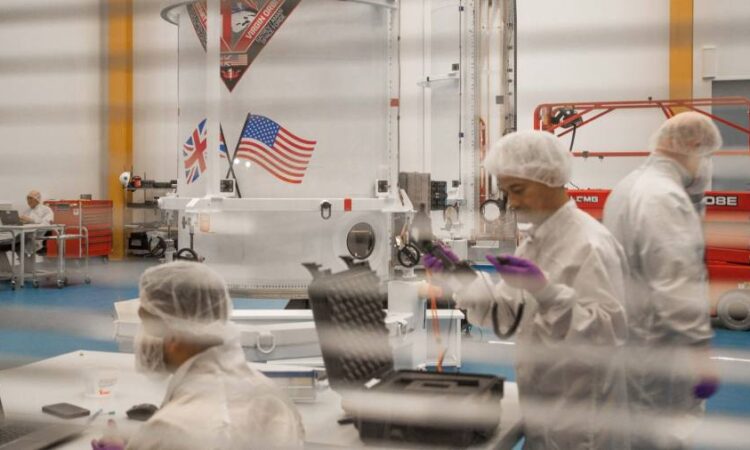
Richard Branson’s Virgin Orbit is in discussions with two financial investors about a potential buyout or fundraising after the British billionaire refused to inject more money into the rocket launch company he founded in 2017.
Chief executive Dan Hart is racing to secure emergency funding to keep the company afloat until it can prove its launch system following the failed mission from the UK in January.
Virgin Orbit, 75 per cent owned by Branson’s Virgin Group, on Wednesday evening announced an “operational pause” for a week. Its 700 staff have been put on unpaid furlough.
“Virgin Orbit is initiating a company-wide operational pause, effective March 16 2023, and anticipates providing an update on go-forward operations in the coming weeks,” the company said in a statement.
Virgin Orbit shares tumbled 33 per cent by early afternoon on Thursday in New York trading.
People close to the company said the cash crunch comes just weeks before Virgin Orbit was hoping for clearance from US safety authorities to launch a new mission from the Mojave desert.
However, the company has run out of cash and without a new injection soon will be unable to fly that mission.
People close to Virgin Orbit said all options were on the table in discussions with financial investors, including the sale of the whole business, a stake or even just the horizontal launch technology.
Virgin Orbit is the world’s first company to operate such a system, using a converted a 747 jumbo jet to carry a rocket to 35,000 feet altitude, where it is released to fly satellites to orbit. It has flown four successful missions and launched 33 satellites into orbit.
It is unclear whether Branson aims to retain a stake in the business. Since the company was founded he has invested $1bn into Virgin Orbit, with $60mn injected since November.
Spun out of Branson’s space tourism company Virgin Galactic, Virgin Orbit was floated on Nasdaq through a special purpose acquisition company in 2021 with a valuation of $3.7bn. Any sale price is likely to be a fraction of that valuation, one person said.
The group has been strapped for funds since spring of last year, according to the person who knows the company well. When it came to market through a Spac, it raised $220mn against expectations of $300mn-$400mn. Then the failed launch in the UK set back plans to take the mobile launch system global, further stressing company finances.
“It was costing $50mn in cash a quarter to run as it stands today,” the person said. “They started on the back foot because they didn’t raise enough cash. Then it has been a series of mishaps and delays that impacted them.”
The crisis means Virgin Orbit is highly unlikely to return this year for another attempt to launch from the UK’s Cornwall space port. However, Britain has other spaceports in Scotland jostling to claim the prize of being the first to host a launch from UK soil.
George Freeman, science minister, said the government was still committed to launching satellites from the UK.
“The global market for low-Earth orbit small commercial satellite launch is set to grow massively in the next decade,” he said. “The UK’s position as an island in the upper latitudes makes us an obvious place for putting satellites into low-Earth orbit.”
“Launch is a commercial market: our focus is on setting the regulatory framework and supporting the infrastructure and licensing of the Shetlands and Sutherland spaceports, where four launches are planned for 2024,” he added.






